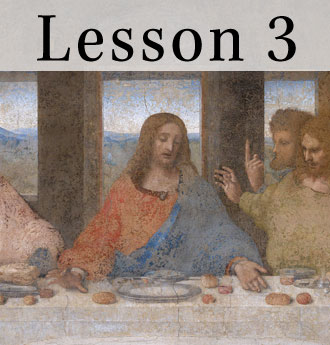The Resource Center » Level 3 » Unit 1 »
Lesson 3: What Historical Developments Influenced Modern Ideas of Individual Rights?

Lesson Purpose
The previous two lessons explored ideas that shaped the Founders' thinking about constitutional government and civic life. This lesson examines several important historical developments that also influenced their ideas.
Lesson Objectives
When you have finished this lesson, you should be able to
- explain the differences between classical republican and Judeo-Christian ideas about the importance of the individual,
- explain how certain historical developments influenced modern ideas about government, constitutionalism, and individual rights, and
- evaluate, take, and defend positions on approaches to theories of morality, the importance of the rise of capitalism, and how the Enlightenment inspired the Founders.
Lesson Terms
capitalism
An economic system in which the means of producing and distributing goods are privately owned and operated for profit in competitive markets.
city-state
feudalism
Judeo-Christian
nation-state
private morality
public morality
Lesson Biographies
Bacon, Roger (1214-1294 CE)
Bacon was an English empirical philosopher who focused on sensation as the primary method of acquiring knowledge. One of first advocates of modern scientific method to study the world, he also urged theologians to study science. He advocated reading the Bible and other texts in original languages.
Machiavelli, Niccolo di (1469-1527 CE)
Copernicus, Nicolaus (1473-1543 CE)
More, Thomas (1478-1534 CE)
Luther, Martin (1483-1546 CE)
Henry VIII (1491-1547 CE)
Calvin, John (1509-1564 CE)
Elizabeth I (1533-1603 CE)
Galileo, Galilei (1564-1642 CE)
Kepler, Johannes (1571-1630 CE)
Hobbes, Thomas (1588-1679 CE)
Descartes, Rene (1596-1650 CE)
Locke, John (1632-1704 CE)
Newton, Isaac (1643-1727 CE)
Montesquieu (1689-1755 CE)
Smith, Adam (1723-1790 CE)
Madison, James (1751-1836 CE)
Lesson Primary Sources
Petition for a Charter of New England, March 3, 1619
A petition by the Northern Company of Adventurers, comprised of the surviving members of the Plymouth Company, to create a new settlement and local government in northern Virginia, in the area they designate as New England.
Thomas Hobbes--Leviathan, 1651
Abolition of Star Chamber
English Bill of Rights 1689
Adam Smith--Wealth of Nations, 1776
Ninety-Five Theses on the Power and Efficacy of Indulgences--Luther, 1517
Discourses on Livy--Niccolo Machiavelli
Grant of a Gild to the Tanners of Rouen, 1170
Contract For Quarrying & Dressing Stone, 1248
New Atlantis--Francis Bacon, 1627
Of Commerce--David Hume, 1752
Federalist No. 37
Maryland Toleration Act, 1649
Declaration of Independence 1776






